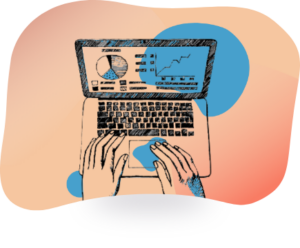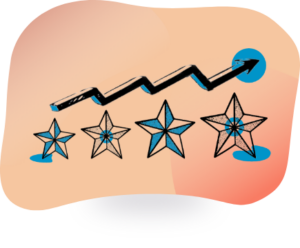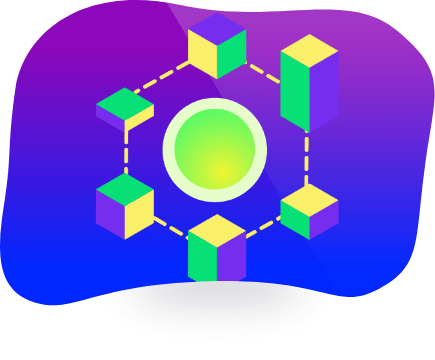
Key Takeaways:
The shift from the traditional offices to the work-from-home (WFH) setup poses an assortment of new challenges for employees all over the world. Of all the professions that require a human touch, sales come right at the top. It’s all about human interaction in sales.
Consequently, sales teams must confront unique challenges as they progress in remote selling in the digital landscape.
Gone are the days of in-person meetings which once helped cultivate relationships with customers. The sales process is now confined to remote and virtual interactions.
While adapting to the changing ecosystem, sales reps must also face precarious economic conditions with businesses becoming conservative about their spending.
For instance, a report by Bain & Company states that more than half of US businesses have significantly cut down their budgets for technology, hardware, software, and services. For sales reps, this means twice the effort and focus to sell products and services in order to meet their quotas.
It is apparent that sales coaching has taken an entirely new meaning, becoming more crucial than ever to upskill teams. Learning and development must be the top priority for businesses, irrespective of the sector.
Utilizing the Potential of AI in Sales
Sales professionals actually spend about 34% of their time selling. The use of AI has enabled such teams to automate repetitive tasks at an everyday level, freeing salespeople to do what they should be doing: building relationships with customers.
The use of AI also doesn’t mean that you replace your sales team.
Rather, this technology provides them with the tools and insights they require to work smarter, boosting productivity rates, and keeping the team morale high.
The Role of AI in Sales Coaching and Training
The days of standardized learning for every employee are quickly fading away.
The scope of AI sales coaching and enablement is huge, where content can be personalized to suit the needs of a particular individual. This kind of learning focuses on the skills and knowledge gaps unique to each sales rep.
Not only does this pave the way for a more targeted approach to improved sales coaching, but such precise sales training can enable your sales team to stay ahead at all times.
In fact, AI can recommend suitable content to the individual learner based on their performance and key behavior. It can even predict the areas where the learner needs to put greater emphasis for a holistic learning experience.
The 4 Benefits of AI Sales Coaching

AI promises to resolve many challenges hindering the growth of sales teams today. Some of the focus areas are:
1. A Data-focused Approach
AI can revitalize and improve sales coaching by collecting and rapidly analyzing vast amounts of data related to your sales pipeline and matching the same with the sales rep’s performance.
When you know where your sales reps are struggling, you can focus on the pain points in detail.
Let’s say that the AI tool reveals that your sales rep finds it difficult to sell the product or service at a particular stage of the sales cycle.
This vital piece of information can help you to refine the training process and focus more on the relevant product.
Sales reps can be equipped with even more knowledge about what they are selling, including its strengths, and weaknesses.
2. On-demand Learning
Amid the changing business landscape, it is no longer enough to carve out a few-hour long session that does not deep dive into individual pain points.
Neither will it be fruitful to make your team participate in a live instructor-led training, even at a time conducive to every party. Your sales coaching and training strategy requires on-demand learning and content that is tailor-made for each individual.
This is where AI comes in.
In addition to providing data and numbers to streamline the process, AI provides a much smarter, more impactful channel to deliver the information.
3. Simulate Real-world Scenarios
Role-playing exercise is an important facet of sales coaching helping sales reps target customers in specific situations. Unfortunately, such interactions are off-limit in the current climate.
When you use AI with Augmented Reality (AR) and Virtual Reality (VR), you can help create real-world coaching scenarios by increasing your costs.
Your sales reps can interact and engage with buyer personas, simulated digitally, and ask relevant questions.
Such an approach can give you a glimpse into the areas of improvement and you can further align your learning content.
4. Personalized Learning Experience
When each of your sales reps have different pain points as well as unique learning styles, why not personalize the entire experience for them?
This could be through microlearning, video content, instructor-led, and even gamification and podcasts.
With AI, your sales training can be adaptive, where the learning path can be modified.
So your learning material can be both video-based and text-based, depending on the route most favored by your sales reps.
How Do You Use AI for Sales Coaching and Enablement?
Whether you are excited or nervous about the growing impact of AI sales enablement, artificial intelligence is here to stay.
If you are looking to adopt this innovation, this is what you should be exploring.
1. Start with the Basics
While you don’t need to be a technical expert to take advantage of AI tools, it’s always a better approach to know more about the terminologies used in AI.
Additionally, staying on top of trends is the second point you should keep in mind.
Track what products are dominating the market and you can keep your training focused on what really matters.
2. Evaluate Your Training Tech
Before you make way for AI in sales coaching, assess the sales training program that is already in place.
AI can help you to fine-tune and tweak it.
Start with an audit of your current sales training tool. This will give you a holistic view of your in-house capabilities. Move over to identifying knowledge or skill gaps in management.
Once you are armed with this information, you can evaluate which type of AI tools can best fit the picture.
You can do this by reading technical blogs, reviews on AI tools that are seeing huge upticks as well as user reviews.
3. Make Way for a Data-driven Mindset
Data forms an integral part of any AI tool.
However, this needs to be a permanent feature for your teams as well.
You must be explicitly clear about the metrics you want to use for performance measurement. Only then will you be able to identify the gaps that are inhibiting your sales reps from reaching their targets.
4. Have Internal Discussions
Sudden changes in the training program might lead to a chaotic environment where half of your team is enthusiastic about the introduction while the other half is nervous.
So before you invest in AI platforms and tools, discuss it with your team.
Alleviate their apprehensions and ensure that the whole team is onboard. Only then will you achieve a successful return on investment on your sales training program.
5. Get the Right Coach
Remember that having an AI-enabled sales coaching program is not enough to upskill your team.
Sometimes, your sales manager might not be the best fit for a sales coach. Effective sales coaching requires individualized attention and sales instructors must instill a feeling of trust in the trainees.
The AI Imperative








